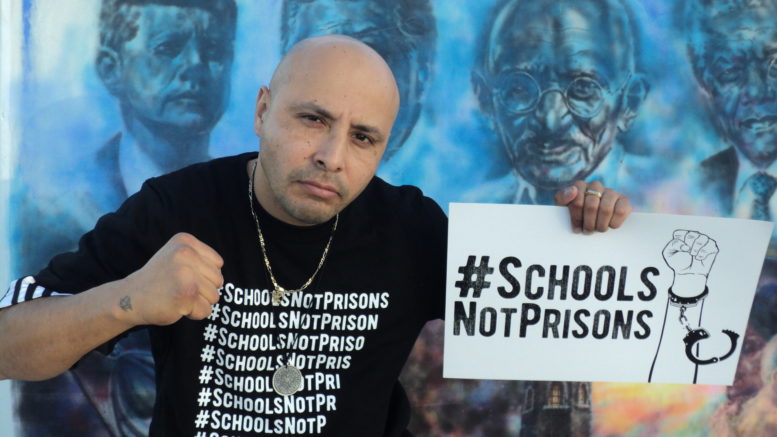BY EDGAR SANCHEZ
After serving 18 years in prison for manslaughter with a gang enhancement, Henry Ortiz was determined to prove he was a new man.
But in November 2017, after only five days of freedom in Los Angeles County, Ortiz was arrested by Culver City police on what he called phony charges of associating with gang members.
He regained his freedom a week later, after after an investigation by External Affairs.
“I concluded I was not going to make it in L.A. County,” Ortiz, 37, said recently.
He immediately moved to Sacramento — a city he didn’t know, but where a network of friends that he met in prison awaited him, some of whom belonged to the Sacramento Community Reinvestment Coalition, or SCRC.
Besides campaigning for criminal justice reform, SCRC ensures that newly released parolees arriving here receive emotional support, plus help in finding jobs, affordable housing and other services.
Parolees “have paid their debt to society. They deserve an opportunity to become a thriving part of the community,” said Ryan McClinton, a community organizer for Sacramento ACT and an SCRC leader. An advocacy group, the broad-based SCRC works with nonprofits including the Anti-Recidivism Coalition to Self-Awareness and Recovery (SAR) to develop assistance for ex-inmates.
SCRC heard concerns about the criminal justice system by hosting four public forums in 2017/2018, with the support of The California Endowment. More than 500 people attended attended the forums, which identified the need for Sacramento County to create more mental health/therapy services for parolees and their families, and more liveable-wage jobs/job training in disadvantaged communities.
“Sacramento has been a blessing to me.”
Henry Ortiz
Co-Founder/curriculum developer for Self-Awareness and Recovery
SCRC is sending a letter to Sacramento County officials, asking that extra funds generated by prison reform measures, such as Propositions 47 and 57, be invested in community-based organizations that help parolees.
SCRC collected letters of support for its proposal, which it hopes will be discussed by the County Board of Supervisors.
Ortiz, meanwhile, has done well.
He became a program coordinator/curriculum developer for SAR at its Sacramento office. The rehabilitation program was founded by Ortiz and fellow inmate Daniel Silva in 2005 at Mule Creek State Prison to help offenders overcome destructive behavior. Silva opened SAR’s local office upon his release in 2015; it has since expanded to serve at-risk youth and parolees.
“Sacramento has been a blessing to me,” Ortiz said gratefully, in 2010.
Click “Learn more” below to read about the Self-Awareness and Recovery program.





























Be the first to comment on "Sacramento Nonprofits Help Ex-inmates Thrive on the Outside"